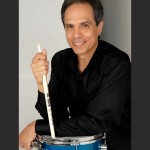About Drumming
One can be over enthusiastic when offered a gig, especially young musicians entering the professional ranks. Without thorough vetting of the employer’s offer, the fee you agree upon can easily fall short after the expenses of the job are subtracted.
I wrote this following a discussion with a student who has been studying with me since the age of twelve. He is twenty two now and venturing into the professional ranks. He is becoming “in… Continue reading
It may seem an over simplification and sort of “touchy feely” when some use the words “kindness” and “gratitude” as it applies to their career.
Granted, there is a certain amount of focused intention, confidence and even boldness to move one’s career forward. When feelings of jealousy, resentment, undue self-importance color one’s attitude, even though these feelings/attitudes may not be voiced verbally, the results can be detrimental.
As an art form, music universally causes the… Continue reading
The Jamie Faunt “Rhythm Course and Groove Course”
Re-Released

I met Jamie in the fall of 1987 after I had moved from Manhattan to Los Angeles. He had an office for “The Faunt School of Creative Music” located at Mad Hatter Studios where he held weekly meetings with his staff and conducted general school business. It was at Mad Hatter Studios where Jamie and I first met. Chick Corea owned Mad Hatter Studios. Jamie and… Continue reading
It is difficult for me not to be nostalgic about The Beatles and Ringo Starr. I grew up listening to the band and learned my early drumming skills cheerfully playing along to their recordings. Since Ringo came on the drumming scene with a very loud rim shot in 1963, I have had many conversations with fellow drummers about Ringo’s skills or lack of such.
To those who have mocked Ringo my retort has been, “how… Continue reading
Interestingly, most drum instruction does not take this up and that is unfortunate. Stress is given to rudiments, stick control, finger control, styles, licks, etc. The focus is mainly on technique and some aspects of rhythm but not the whole picture.
Examples of some drummers who know how to “Play the Song” are: Continue reading
Part of the rhythmic skill of a drummer is mental “time sense” and it is the most important natural ability a drummer has. Time sense is the drummer's ability to perceive the even space between beats continuously and where the center of the beat is. Under the influence of drugs that ability is damaged. Natural steady time becomes uneven. Residual effects of drug use continue to effect the time sense. Continue reading
For some, it is a feeling that cannot be expressed in words, only felt. I have thought about this for many years and I often wondered what it was.
I remember falling asleep during my early childhood years listening to the washing machine in the kitchen from my bedroom. Little did my mother know how much her doing laundry at my bedtime would later affect my life. Continue reading
This was true all the way up to the early part of the 20th century until "trap sets" began to appear. Drummers began adding bass drums with pedals and that got the feet involved. Continue reading
